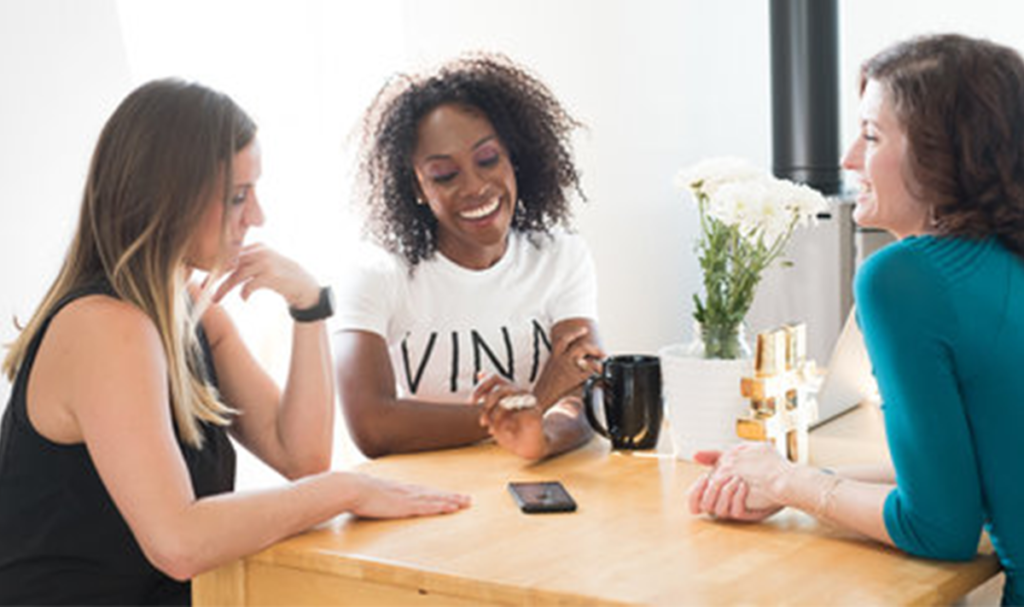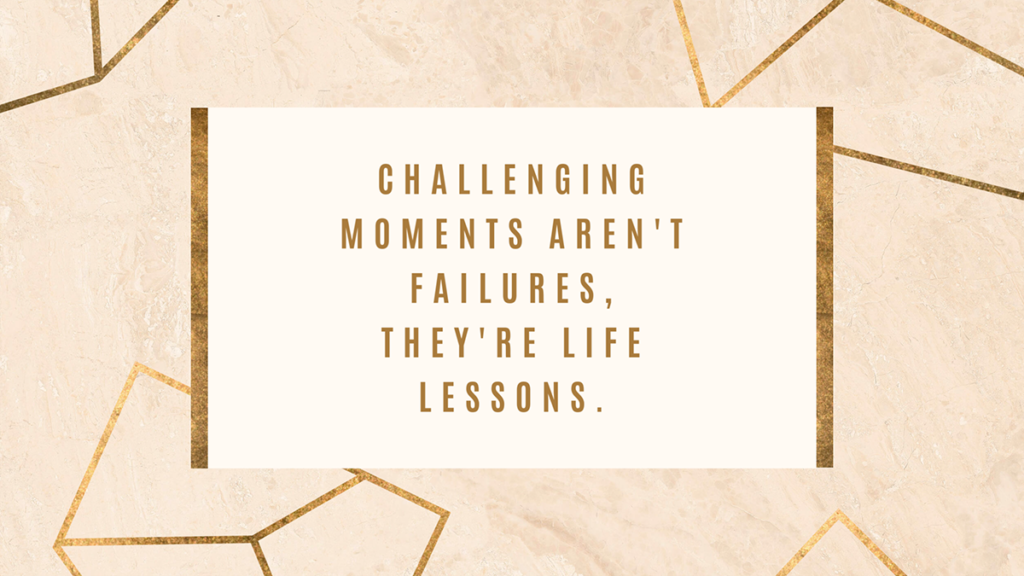Wouldn’t it be amazing if you could figure out how to make money doing what you love most? For some people, that sounds like a pipe dream. They think: How can I possibly create a business out of my love of making pies, walking dogs, or playing golf? But the truth is, you really can create a career from anything you’re passionate about, it just requires a whole lot of patience, perseverance, and planning.
Just look at Money & Mimosas founder Danetha Doe. She created a successful coaching, consulting, speaking, and blogging business out of her love of bottomless mimosa brunches with her girlfriends. One Sunday, after spending hours discussing everything from money issues to entrepreneurial schemes to marriage plans over champagne and eggs, Danetha decided to parlay her favorite activity into a real business.
Today, Danetha spends her days helping people (mostly women) discover their passions, manage their money, and grow their businesses. She recently held a webinar with PicMonkey to share her unique perspective and inspire people to achieve their dreams.
Change your mindset

Finding success and reaching your goals depends a lot on what goes on inside your head. So before you take the leap and start your own business, you need to believe in yourself and your worth and trust your instincts. “Confidence is one of the biggest factors when it comes to financial success,” according to Danetha. But she also points out that building your confidence is an ongoing process: “I’m more confident now than I was when I first started my business almost eight years ago, and I hope that I’m even more confident eight years from now.”
Danetha suggests getting into a money mindset by reading an article a day about a financial issue, such as tax reform, retirement planning, and investing. “Understanding the language and concepts around money helps you start to develop a sense of confidence around it,” she says. Another way to boost your confidence and get inspiration is to look for other people who are doing something similar. “Find someone who’s doing what you want to be doing and just observe them,” she suggests. Watch their interviews, follow them on social media, and try to tap into the secrets of their success.
Another important mindset change is to get comfortable asking people to pay for your services. ��“As soon as you can, start charging,” recommends Danetha. She notes that a lot of creatives are so happy and grateful to be doing what they love, they don’t feel the need to ask for compensation. “Your work is incredibly valuable, and if you don’t charge appropriately, you’re underestimating your worth and diluting the market.”
Assess your finances

Once you get acclimated to the idea of charging, you’ll need to figure out the amount you want to ask for. Danetha recommends first calculating how much you’ll need to earn in order to cover your bills and finance your lifestyle. “You want to build a business that supports your life,” she explains. “What do you need to make in order to feel like you’re thriving financially?” She suggests sitting down and itemizing all of your costs, including the basics such as rent, food, and transportation, as well as the things that are important to you, such as manicures, gym memberships, and therapy visits. Once you have a final number, she suggests adding on about 20 percent more for miscellaneous expenses.
Knowing what you’ll need to live your life will help you figure out what to charge. But you’ll also have to consider the overall market for your product or service and get a sense of what it will bear. Markets vary geographically, so big cities like San Francisco and New York, for example, will allow for higher rates than smaller towns in the middle of the country.
Some small businesses require an infusion of cash to get off the ground. If you need a loan to get your business up and running, Danetha recommends first creating a business plan. “Just Google ‘business plan’ and you’ll find templates you can use with key information such as your financial projections,” she says. Going for a traditional bank loan can be challenging, so she recommends looking into alternative options, such as micro lenders, venture capital firms, and angel investors.
Build your brand

While creating a strong, consistent brand is the ultimate goal for any business, Danetha acknowledges that brand building is a process. “Money & Mimosas has gone through a lot of iterations,” she says. “Your first version will not be the best one, and it will just continue to evolve and grow with you as a person and with your surroundings.”
For Danetha, the branding process was about taking time to reflect on what felt most authentic to her and using that as creative fuel. She did some research into color theory and which colors evoke different feelings, settling on a palette that included a lot of champagne colors in order to suggest luxury and a sense of calm. Once she had her color palette down, she could design visuals that solidified her brand identity and reinforced the thoughts and emotions she was trying to elicit from people.
One of her favorite design tools is PicMonkey, because of its ease of use, convenience, and power to produce beautiful imagery. “When I need to produce something visually appealing, I immediately turn to PicMonkey,” says Danetha. “The other day I had to put together a pitch quickly. I found a poster template in PicMonkey that had the layout design that was exactly what I needed.”
Track your money

“Keeping close track of your expenses can be daunting and, honestly, boring,” admits Danetha. Which is why she tries to turn it into a fun rather than mundane task. She makes a weekly Money Date with herself every Friday and goes over the week’s expenses and income. She gives the experience a celebratory vibe, seeing expenses as good investments in her business and her future and profits as signs of success. “It’s important to give yourself credit for your efforts, even before you see the money come back to you,” she notes. “You’re putting yourself out on a limb, so give yourself a pat on the back.” And of course, you’ll need an accurate record of expenses for tax purposes.
Danetha recommends using an app such as Mint or Personal Capital that can connect with your bank account so you can have all your information in one place. This will help you categorize your expenses and get a sense of how much you’re spending in each category. She says that these exercises in money management also help you establish that entrepreneurial mindset that’s so important to your success.
Learn from your mistakes

Most entrepreneurs go through bad business ventures, but they don’t have to be seen as a complete loss of money and time. “I’ve experienced so many challenging moments that I used to call failures,” recalls Danetha. “Now I see them as life lessons. I realize that they are actually blessings.”
Early in her career, Danetha started a business selling activewear for NFL cheerleaders and NBA dancers. “It was a complete flop,” she remembers. “I had no idea what I was doing and I spent too much money on it. I was so depressed.” But because the business ultimately folded, Danetha was free to meet her fiancé, move to California, and launch the business that became her true calling. “I was living out the wrong dream for myself. And that so-called failure redirected me to the path that was most in alignment with my true self.”
Danetha advises budding business people to look at seeming failures as learning opportunities and important steps on the road to success. She also notes that you should expect to have slow periods, and these lulls shouldn’t alarm you. “For every business, cash flow has seasonality. There are going to be times when cash is coming in beautifully and then other times when it’s a bit slower. Be comfortable in those times of slowness and use those periods to enjoy life.”
For more tips on how to make money doing what you love, join the weekly Money & Mimosas newsletter.
